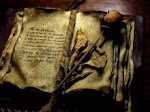Writer-director Sarita Vohra presents the Kashmir conflict through a story of a houseboat owner in Mat Todo Yeh Vadi
This weekend, Living Room Theatre takes up Kashmir, in a play, titled Mat Todo Yeh Vadi. 'It is a musical play. It has loud laughter, joys and sorrows against the backdrop of terror and strife,' says writer-director Sarita Vohra.
Scenes from the play
From a kernel of grim subjects, Sarita Vohra creates theatre that rivets entire auditoriums. Diseases such as thalassemia, breast cancer, multiple sclerosis and autism, and personalities such as Mohammed Shah “Rangeela”, a Mughal emperor and connoisseur of the arts who revived the culture of music, dance and poetry that had been destroyed by Aurangzeb, are part of the oeuvre of her group. This weekend, Living Room Theatre takes up Kashmir, in a play, titled Mat Todo Yeh Vadi. “It is a musical play. It has loud laughter, joys and sorrows against the backdrop of terror and strife,” says Vohra. Excerpts from an interview with her:
Have the recent events in Kashmir inspired this play?
I had written this play in 1992 and called it Mat Chhodo Yeh Vadi (Don’t Leave the Valley). This was the time that Pundits were leaving Kashmir. I had spent a lot of my childhood in Kashmir and have vivid memories of the Valley. The trouble was just starting when I visited Kashmir but it was beautiful and peaceful. In 1996, I revived this play in Mumbai. The play did very well, including commercially. I revived this play recently because Kashmir is so much in the news now.
Why did you convert the story of conflict into a musical?
The story is about a family. The father is a houseboat owner and they are always waiting for tourists to come. Finally, there are guests from London and this marks a change in the life of the family. A lot of the play is based on true life incidents, though I have changed names. I am trying to show vignettes from Kashmir, such as the plight of students, as well as of musicians, who have no audience, and the realities of stone pelters. The play is from the point of view of local people and there is nothing political.
Many of the actors of Living Room Theatre are amateurs. How did you create and sustain the group?
I started in Mumbai in 1998 in the living room of my house as we did not have funds to go out and do big plays. We got noticed very soon. I used to do a lot of children’s theatre and a lot of big sponsors came to us. I relocated in Delhi in 2001 and the Living Room Theatre became a registered society in 2007. I managed to hold the group together because I am working on contemporary issues. People want to work for a cause. We sensitise the audience and make them sit up and watch. That is the whole ethos of Living Room Theatre. Some of the actors are poets and writers, ex-servicemen, young executives and businessmen. There are also professional actors who are doing back-to-back work in theatre, TV and films. One of the main characters in Mat Todo Yeh Vadi is Shinjini Kulkarni, the granddaughter of Birju Maharaj. Her performance is not based on kathak, but improvisations.
How did music, dance and humour become the signatures of your theatre?
No matter how serious the subject, we deal with it with humour because, I feel, humour is very necessary to get across to the audience. It is not about laughing foolishly but there are punchline dialogues and I add music and a bit of dance to the play because that makes it livelier.
What brought you into theatre?
I am trained in Hindustani vocals and I was learning at Triveni Kala Sangam in Delhi. They had an amphitheatre and Sheila Bhatia, my mentor and guru, who was also professor at NSD, had a group called the Delhi Art Theatre. She knew my parents. She would often see me coming down after my music lessons and standing and watching the rehearsals. One day, she came up to me and said, ‘What are you doing here?’ I said, ‘I am learning music.’ She used to do opera and said, ‘Wow, we are looking for a singer.’ I did a lot of opera for her.
At LTG auditorium in Delhi on April 7. Entry: Rs 400, 300, 200
For all the latest Lifestyle News, download Indian Express App




















No hay comentarios:
Publicar un comentario